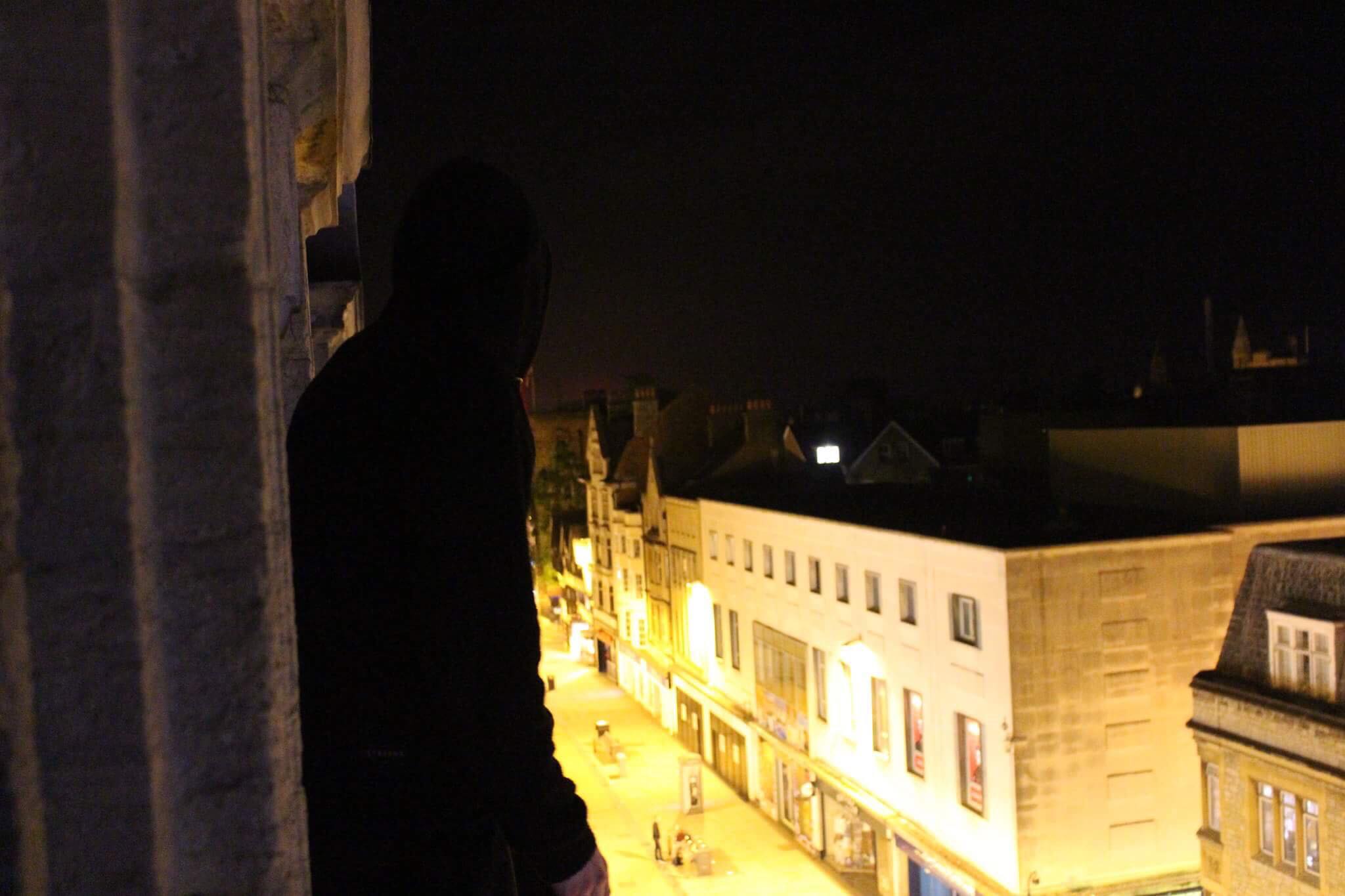
‘We’re Not Heroes’: The ISIS meets the Night Climbers of Oxford
Night has set upon the city of dreaming spires. Rain pours over the freshers hastily making their way back from Cellar. The queue for Hassan’s spirals around Turl Street. The sound of joyful revellers intermingles with the patter of rain against gravel. You sense something above you, a fleeting instance of darkness. A slither of a silhouette, gliding from building to building. It’s a night climber.
The night climbers are the most recent local example of ‘modern’ heroism. From Beowulf to Batman, heroism is almost unrecognisable from what it once was. The hero warriors of old English poetry, endowed with super-human courage, have been replaced by a new ideal. If this is the heroic tradition established in the seventh century, what are the ideals of today? The responses from an interview with one of the night climbers—both blunt yet pretentious, surreal yet foreboding—seem to encapsulate the new heroic ideal all at once.
How did you first learn about the night climbers and what inspired you to join?
Night climbing is by no means a new game here in Oxford, and its roots stem back all the way to the late 1930s. I myself have a multi-disciplinary background consisting of Parkour and Bouldering. I first learnt about night climbing when I visited Cambridge aged 13, during a tour around various colleges. Before I decided to officially form a group, I did a lot of reading around the original group of Cambridge night climbers. I certainly share some key political views with climbers such as Nares Craig and Geoffrey Young regarding peace. Although I take more inspiration from the Yamakasi and the original founders of Parkour.
How do you recruit for the night climbers?
We usually recruit people in Oxford from two different communities, which we believe host physical disciplines that are applicable to our group. One of these communities regularly attends a venue which we find very easy to observe and select people from.
But we’re not just after physical attributes and you don’t have to be the best climber in the world—we’re after intellect as well. Above all, however, the people we select need to be trustworthy, so they have usually bonded with one of our members before being invited.
What has been your most adventurous or dangerous feat as a night climber?
We don’t really make dangerous climbs because we don’t do anything outside of our capabilities. The climbs we conduct are risky, but risk is relative. My philosophy is that if you’re not willing to risk the unusual, then you’ll always have to settle for the ordinary. The most adventurous climb I’ve undertaken so far has been scaling the northern face of Queen’s College.
How do you deal with fear?
For me fear isn’t real, but danger is very real. Fear is the bi-product of intrinsic apprehension and scepticism in your abilities. For that reason, fear to me is a choice. You can train yourself to suppress it through repeating whatever your end goal is, because repetition brings confidence. When I’m about to leap from one building to the other, and I’m confronted by the 60-foot drop, my thought process is always: “If you can do it at two meters from the ground, why not at 20?” I guess what I’m trying to say is: no matter what the challenge is, try to ground yourself first.
Who are your heroes?
People are very dynamic, and as a result their belief systems, morals, and ideologies are forever changing. For that reason, I never look up to one particular person for an extended period of time. In the early twentieth century, Georges Hébert developed a personal motto, “Être fort pour être utile” which translated means “Being strong to be useful.” I guess those are some good words to live by.
In what ways do you feel you may fit the ‘hero’ category?
In all honesty we’re not heroes, we’re more like annoying fairy god geckos. Hero is a term that’s used far too loosely these days. I like to think however that if you can display acts of compassion, bravery, resilience, selflessness, patience, and integrity in anything that you do, then your humanity has overridden all other instincts. Heroism spawns from times when we as people display these characteristics, and all we can do is aspire to achieve at least one of these each day.
How do you use social media and how does it have an impact on the group?
We decided to make anonymous posts to pages such as Oxfess, because we felt the need to bridge the gap between the ever growing roof culture and the general public. In the past, night climbing has remained a very abstract part of society’s night life. We’re seeking to bridge that gap, and get more people engaged. Social media is also a necessary evil. Whilst some of the group disagrees with its uses, the benefits do outweigh the costs. We use social media to bring light to political agendas, usually through posting high-rise photos as this gets people’s attention. We also use social media to express our sentiments on key issues that people face in their day-to-day lives. Providing advice to strangers in their time of need usually brings out the best in us.
Do you ever feel that you are endorsing illegal activities and how do you justify this?
Technically what we do isn’t criminal, and it’s actually classed as a civil offence instead. Unless damage to property occurs, we can’t be arrested for our acts. We’re always very respectful of the buildings which we climb, and we never invade the rooftops of private homes. Even for us, there are lines which we don’t cross. Most of the time we do feel that the agendas which we are driving into view far outweigh the negatives of climbing though. I like to think that this brings balance to our controversial feats.
How do you use night climbing as a way to instigate positive social change?
Night climbing is controversial in nature, and controversy incites interest and promotes change. We attempt to instigate positive social change, not because it deems our acts to be more ethical than egocentric, but because it’s easier to get the message across when there’s a big banner hanging outside your window strung between two spires.
For example, the local council recently tried to impose a fine for rough sleepers, which was disgusting. Even if it was never enforced, it is an abysmal act of social segregation. In cases such as this I like to think of our government as everyone on board a cruise ship sipping champagne, and we’re the iceberg. You can either change course, or we’ll tear you apart and sink you to a new level.






